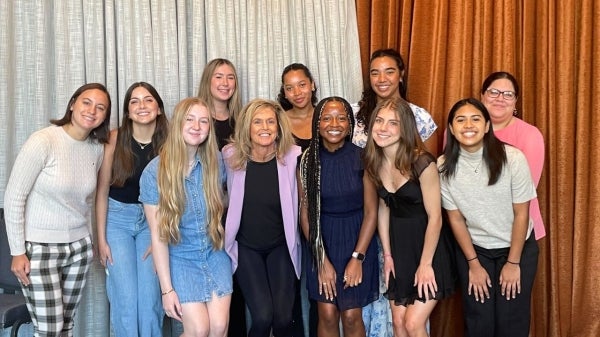Grant to fund ASU research into COVID-19's effects on finding missing, murdered Indigenous people

Photo courtesy Levi Meir Clancy/Unsplash
An Arizona State University lab has received a new state grant to study how the COVID-19 pandemic affected efforts to find missing and murdered Indigenous persons.
The Research on Violent Victimization Lab is headed by criminology and criminal justice Professor Kate Fox. In 2020, Fox’s ASU team researched an increase of cases of missing and murdered Indigenous women.
The $425,000 grant, awarded by the Arizona Office of the Governor, supports Research on Violent Victimization, which, as the lead on the grant, will work closely with the ASU Office of American Indian Projects, based in the School of Social Work. The funds will support Indigenous community partners, a doctoral student and a two-year postdoctoral scholar in the ASU School of Criminology and Criminal Justice.
Fox said her team will expand upon its initial 2020 study by conducting an in-depth investigation in several ways. Tactics include completing interviews with Indigenous community members, examining official data and building partnerships with tribal nations and agencies that serve Indigenous peoples, she said.
In addition, two other ASU-based entities will offer specialized expertise, Fox said. American Indian Initiatives will present perspectives on tribal matters and American Indian Policy Institute will offer insight on policy. The American Indian Policy Institute, School of Criminology and Criminal Justice and School of Social Work are based in the Watts College of Public Service and Community Solutions.
Kate Fox
The grant also will fund participation by other community partners that will be announced soon, Fox said.
A 2019 state law provided funding and authority for MMIWG research and created a 23-member legislative study committee for which Fox and an ASU team examined data. In November 2020, Fox told ASU News such data is lacking due to systemic problems such as racial misclassification by law enforcement agencies.
“Indigenous people are a chronically underfunded population,” Fox said recently, “and this funding is very important because it represents a demonstrated commitment by the Office of the Arizona Governor to support and prioritize work on the safety and well-being of Indigenous peoples.”
More Law, journalism and politics

Cronkite School launches Women Leaders in Sports Media live-learn program
Women in a new sports media program at Arizona State University got a solid game plan from a sports veteran at an Aug. 20 welcome…

ASU center to host the Pursuits of Education and Excellence Symposium
The Center for the Study of Race and Democracy (CSRD) at Arizona State University is introducing the Pursuits of Education and…
ASU journalism students dominate NATAS Student Production Award nominations
Students at Arizona State University’s Walter Cronkite School of Journalism and Mass Communication dominated the nominations…
